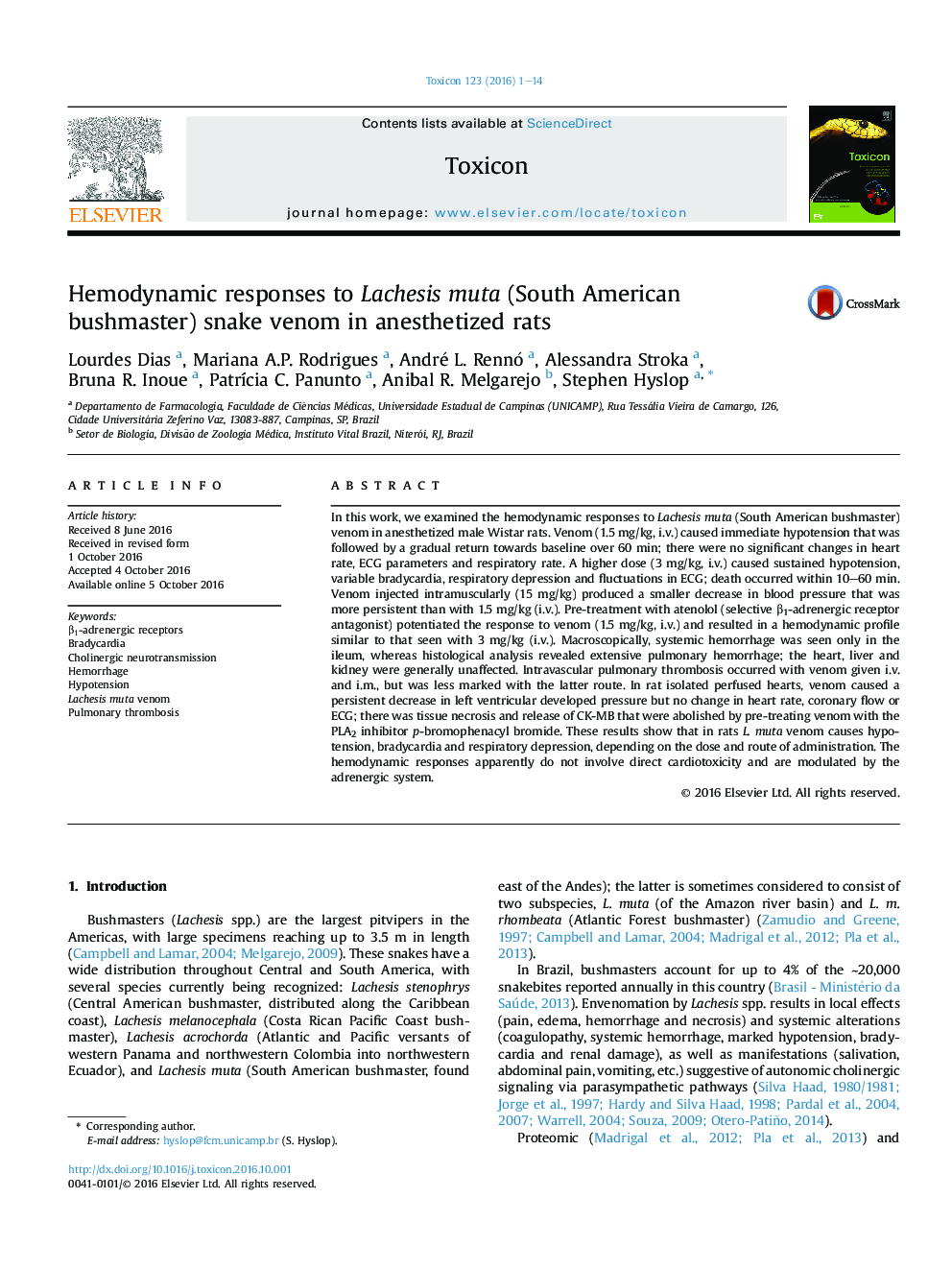| Article ID | Journal | Published Year | Pages | File Type |
|---|---|---|---|---|
| 5519468 | Toxicon | 2016 | 14 Pages |
â¢South American bushmaster (Lachesis muta) venom causes hypotension in rats.â¢Adrenergic reflexes modulate low-dose hypotension.â¢L. muta venom causes minimal cardiac damage in vivo.â¢L. muta venom causes marked pulmonary thrombosis.â¢The global hemodynamic responses may involve vascular and pulmonary effects.
In this work, we examined the hemodynamic responses to Lachesis muta (South American bushmaster) venom in anesthetized male Wistar rats. Venom (1.5 mg/kg, i.v.) caused immediate hypotension that was followed by a gradual return towards baseline over 60 min; there were no significant changes in heart rate, ECG parameters and respiratory rate. A higher dose (3 mg/kg, i.v.) caused sustained hypotension, variable bradycardia, respiratory depression and fluctuations in ECG; death occurred within 10-60 min. Venom injected intramuscularly (15 mg/kg) produced a smaller decrease in blood pressure that was more persistent than with 1.5 mg/kg (i.v.). Pre-treatment with atenolol (selective β1-adrenergic receptor antagonist) potentiated the response to venom (1.5 mg/kg, i.v.) and resulted in a hemodynamic profile similar to that seen with 3 mg/kg (i.v.). Macroscopically, systemic hemorrhage was seen only in the ileum, whereas histological analysis revealed extensive pulmonary hemorrhage; the heart, liver and kidney were generally unaffected. Intravascular pulmonary thrombosis occurred with venom given i.v. and i.m., but was less marked with the latter route. In rat isolated perfused hearts, venom caused a persistent decrease in left ventricular developed pressure but no change in heart rate, coronary flow or ECG; there was tissue necrosis and release of CK-MB that were abolished by pre-treating venom with the PLA2 inhibitor p-bromophenacyl bromide. These results show that in rats L. muta venom causes hypotension, bradycardia and respiratory depression, depending on the dose and route of administration. The hemodynamic responses apparently do not involve direct cardiotoxicity and are modulated by the adrenergic system.
